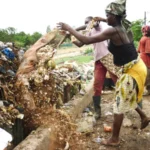Burkina Faso Biological Waste Management
Burkina Faso, a landlocked country in West Africa, faces significant challenges in managing biological and medical waste. Rapid population growth, expanding healthcare infrastructure, and limited waste treatment facilities have raised concerns about public health and environmental safety. To address these issues, eco-safe biological waste management solutions are increasingly being explored, offering both technological and sustainable approaches.
Current Situation of Biological Waste in Burkina Faso
Hospitals, clinics, veterinary centers, and laboratories in Burkina Faso generate biological waste on a daily basis. This includes:
-
Medical waste such as syringes, infusion sets, dressings, and contaminated plastics.
-
Animal by-products from slaughterhouses and veterinary facilities.
-
Organic matter from food industries and urban areas.
In many cases, the lack of advanced treatment facilities results in uncontrolled disposal, open burning, or unsafe landfilling, creating risks of infectious disease spread, water contamination, and air pollution.
Importance of Eco-Safe Waste Management
Adopting eco-safe technologies ensures that waste is treated with minimal environmental impact. For Burkina Faso, this means combining:
-
High-efficiency incinerators with proper secondary combustion chambers and wet scrubber systems to control emissions.
-
Waste segregation programs at source to separate sharps, plastics, and organic waste.
-
Training and capacity building for healthcare and municipal staff to improve compliance with international waste management standards.
Technological Solutions for Burkina Faso
One of the most reliable technologies for biological waste treatment is the use of medical-grade incinerators. For example, the HICLOVER TS100 incinerator with an optional wet scrubber system provides:
-
High-temperature combustion (above 850C1200°C) for complete destruction of pathogens.
-
Multi-chamber design to ensure clean flue gas emissions.
-
PLC-based automation for safe and easy operation in healthcare facilities.
-
Compatibility with diesel, LPG, or natural gas depending on local availability.
Such equipment is particularly valuable in Burkina Faso’s regional hospitals, UN-supported camps, and rural clinics, where reliable and eco-friendly solutions are urgently required.
Commercial Perspective and Market Relevance
International organizations such as the United Nations (UNDP, WHO, UNICEF), NGOs, and government agencies are actively funding projects in Burkina Faso related to healthcare and waste management. These institutions are seeking sustainable and field-proven technologies.
-
Key market drivers: demand for safer hospitals, stricter waste management regulations, and the need for decentralized treatment solutions.
-
Potential buyers: hospitals, municipalities, veterinary departments, mining camps, and refugee support organizations.
With its robust technical features, HICLOVER incinerators represent a practical and cost-effective choice for Burkina Faso, offering both environmental protection and long-term operational reliability.
Conclusion
Eco-safe biological waste management is not just a necessity but a strategic investment for Burkina Faso. By adopting modern incineration systems with emission control, the country can significantly reduce environmental hazards while supporting public health. Reliable solutions like the HICLOVER TS100 incinerator with a scrubber system are well-suited to Burkina Faso’s healthcare and municipal infrastructure, ensuring compliance with international standards and contributing to a cleaner, safer future.

